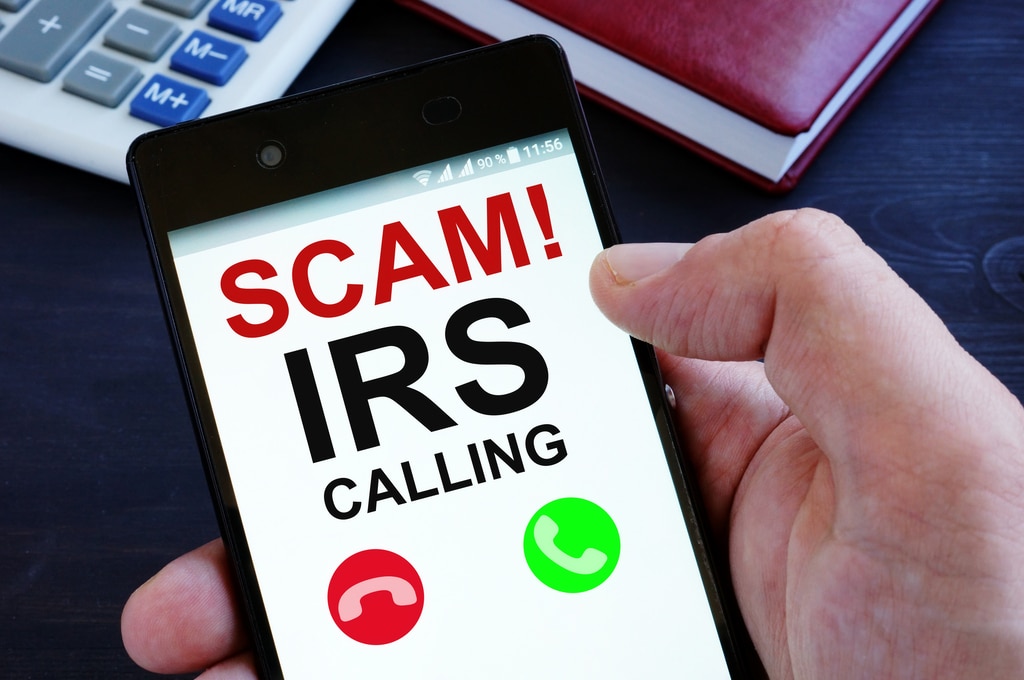Tax season is a busy and stressful time for many taxpayers. Unfortunately, this also makes them vulnerable to scams, especially those that are disguised as official government agencies such as the Internal Revenue Service (IRS). Scammers use various methods, including phone calls, emails, and mailings, to trick people into giving them money or personal information.
In this post, we will discuss why taxpayers should hang up if they receive a call from someone claiming to be from the IRS during tax season.
IRS Impersonation Scams
Scammers posing as IRS agents may call, email, or mail you, claiming that you owe taxes and demanding immediate payment. They may threaten arrest, legal action, or deportation if payment is not made immediately. The IRS will never call you demanding immediate payment or threatening arrest, so it is important to hang up if you receive one of these calls.
Phishing Scams
Phishing scams are emails that appear to be from the IRS or another reputable organization and ask you to provide personal information such as your Social Security number, date of birth, or bank account information. The email may contain links to fake websites that look like the official IRS website or ask you to reply with sensitive information. It is important to hang up if you receive one of these emails and never provide personal information in response.
Refund Scams
Tax scammers may call or email you, claiming that you are entitled to a large refund from the IRS. They may ask for personal information such as your Social Security number or bank account information, in order to directly deposit the refund into your account. It is important to hang up if you receive one of these calls, as the IRS will never initiate contact through email or phone to discuss a refund.
Return Preparer Fraud
Return preparer fraud involves a tax preparer who falsifies information on your tax return in order to increase your refund or claim a larger refund than you are entitled to. This can result in fines, penalties, and even criminal charges, so it is important to be careful when choosing a tax preparer.
Why Taxpayers Should Be Careful During Tax Season
Scammers are everywhere during tax season, trying to take advantage of unsuspecting taxpayers. The scams often involve phone calls, emails, or mailings that appear to be from the IRS. Scammers will use high-pressure tactics such as threatening legal action, arrest, or deportation if payment is not made immediately.
It is crucial to note that the IRS does not make phone calls to demand immediate payment or threaten arrest. Scammers will often ask for personal information such as a Social Security number or bank account information. The IRS will never initiate contact through email or mail requesting personal information.
How to Protect Yourself from Scammers
Do not give out personal information over the phone, through email, or through the mail unless you are sure of the source. Also, verify the authenticity of any contact from the IRS by calling the official IRS hotline. In addition, report any suspected scams to the Treasury Inspector General for Tax Administration (TIGTA) by calling their hotline or filing a report on their website.
Tax season can be a stressful time for many people, making them vulnerable to tax scams. It is important for taxpayers to be aware of these scams and to hang up if they receive a call from someone claiming to be from the IRS during tax season. Scammers will use high-pressure tactics and will often ask for personal information or money. To protect yourself, do not give out personal information and verify the authenticity of any contact from the IRS.
Feel free to contact us at Protect Wealth Academy to get proper guidance on how to protect your wealth and avoid tax scammers. Report any suspected scams to the Treasury Inspector General for Tax Administration. By taking these steps, taxpayers can protect themselves from tax season scammers and enjoy a smoother and stress-free tax season.
